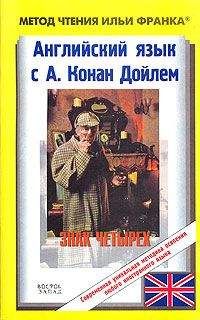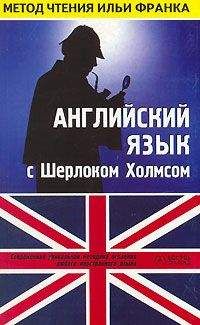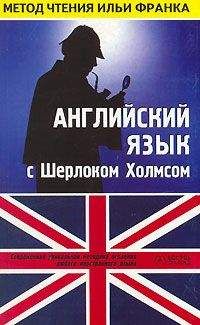knife [naIf], league [li:g], assault [@'sO:lt]
"The third night of my watch was dark and dirty, with a small, driving rain. It was dreary work standing in the gate-way hour after hour in such weather. I tried again and again to make my Sikhs talk, but without much success. At two in the morning the rounds passed, and broke for a moment the weariness of the night. Finding that my companions would not be led into conversation, I took out my pipe, and laid down my musket to strike the match. In an instant the two Sikhs were upon me. One of them snatched my firelock up and levelled it at my head, while the other held a great knife to my throat and swore between his teeth that he would plunge it into me if I moved a step.
"My first thought was that these fellows were in league with the rebels, and that this was the beginning of an assault. If our door were in the hands of the Sepoys the place must fall, and the women and children be treated as they were in Cawnpore. Maybe you gentlemen think that I am just making out a case for myself, but I give you my word that when I thought of that, though I felt the point of the knife at my throat, I opened my mouth with the intention of giving a scream, if it was my last one, which might alarm the main guard. The man who held me seemed to know my thoughts; for, even as I braced myself to it, he whispered, 'Don't make a noise. The fort is safe enough. There are no rebel dogs on this side of the river.' There was the ring of truth in what he said, and I knew that if I raised my voice I was a dead man. I could read it in the fellow's brown eyes. I waited, therefore, in silence, to see what it was that they wanted from me.
" 'Listen to me, Sahib,' said the taller and fiercer of the pair (послушай, сахиб, — сказал тот из этой пары, что был повыше и более свирепый), the one whom they called Abdullah Khan (которого они называли Абдулла Хан). 'You must either be with us now or you must be silenced forever (либо ты присоединяешься к нам теперь, либо ты навеки замолчишь; to silence — заставить замолчать). The thing is too great a one for us to hesitate (дело слишком важное для нас, чтобы колебаться; great — большой, огромный; важный, значительный). Either you are heart and soul with us on your oath on the cross of the Christians (либо ты душой и телом с нами и даешь клятву на христианском кресте), or your body this night shall be thrown into the ditch and we shall pass over to our brothers in the rebel army (либо твое тело этой ночью будет брошено в канаву, а мы перейдем к нашим братьям в армию повстанцев). There is no middle way (третьего: «среднего» пути нет). Which is it to be, death or life (что вы выбираешь, жизнь или смерть)? We can only give you three minutes to decide (мы можем дать тебе только три минуты на раздумья: «чтобы решить»), for the time is passing, and all must be done before the rounds come again (так как время идет, и все надо сделать, прежде чем снова придет проверяющий: «обход»).'
"'How can I decide?' said I (как я могу решить, — сказал я). 'You have not told me what you want of me (вы не сказали, чего хотите от меня). But I tell you now that if it is anything against the safety of the fort (но могу сразу вам сказать, что если это нанесет урон: «что-нибудь против» безопасности крепости) I will have no truck with it (я не вступлю с вами в сговор; truck — обмен, мена; отношения, связи; to have no truck with — не иметь никаких отношений с), so you can drive home your knife and welcome (так что используйте свой нож, да и делу конец; to drive home — вонзить на всю глубину: «загнать домой»).'
"'It is nothing against the fort,' said he (это не связано с крепостью: «ничего против крепости», — сказал он). 'We only ask you to do that which your countrymen come to this land for (мы всего лишь просим тебя сделать то, ради чего твои соотечественники и приезжают в эту страну). We ask you to be rich (мы просим тебя стать богатым). If you will be one of us this night (если ты этой ночью будешь одним из нас), we will swear to you upon the naked knife (мы клянемся тебе обнаженным ножом), and by the threefold oath which no Sikh was ever known to break (и трехкратной клятвой, которую никогда еще не нарушил ни один сикх: «неизвестен ни один сикх, который когда-либо нарушил»), that you shall have your fair share of the loot (что ты получишь честную долю добычи). A quarter of the treasure shall be yours (четверть сокровищ будет твоей). We can say no fairer (честнее и быть не может).'
Christian [' [email protected]], naked ['neIkId]
"'Listen to me, Sahib,' said the taller and fiercer of the pair, the one whom they called Abdullah Khan. 'You must either be with us now or you must be silenced forever. The thing is too great a one for us to hesitate. Either you are heart and soul with us on your oath on the cross of the Christians, or your body this night shall be thrown into the ditch and we shall pass over to our brothers in the rebel army. There is no middle way. Which is it to be, death or life? We can only give you three minutes to decide, for the time is passing, and all must be done before the rounds come again.'
"'How can I decide?' said I. 'You have not told me what you want of me. But I tell you now that if it is anything against the safety of the fort I will have no truck with it, so you can drive home your knife and welcome.'
"'It is nothing against the fort,' said he. 'We only ask you to do that which your countrymen come to this land for. We ask you to be rich. If you will be one of us this night, we will swear to you upon the naked knife, and by the threefold oath which no Sikh was ever known to break, that you shall have your fair share of the loot. A quarter of the treasure shall be yours. We can say no fairer.'
"'But what is the treasure, then?' I asked (но тогда что это за сокровища? — спросил я). 'I am as ready to be rich as you can be (я так же готов разбогатеть, как и любой другой), if you will but show me how it can be done (если вы только покажете мне, как это сделать).'
"'You will swear, then,' said he (тогда ты клянешься, — сказал он), 'by the bones of your father (костями твоего отца), by the honour of your mother (честью твоей матери), by the cross of your faith (крестом твоей веры), to raise no hand and speak no word against us, either now or afterwards (что ты не поднимешь на нас руку и не будешь свидетельствовать против нас, ни сейчас, ни впредь)?'
"'I will swear it,' I answered, 'provided that the fort is not endangered (клянусь, — ответил я, — при условии, что это не угрожает крепости; danger — опасность).'
"'Then my comrade and I will swear that you shall have a quarter of the treasure (тогда мой товарищ и я клянемся, что ты получишь четвертую часть сокровищ) which shall be equally divided among the four of us (которые будут поделены между нами четырьмя на равные доли; equal — равный, одинаковый).'
"'There are but three,' said I (но нас же только трое, — сказал я).
"'No; Dost Akbar must have his share (нет, Дост Акбар должен получить свою долю). We can tell the tale to you while we await them (мы можем тебе все рассказать, пока мы их ждем). Do you stand at the gate, Mahomet Singh, and give notice of their coming (встань у ворот, Мохаммед Сингх, и дай нам знать, когда они появятся). The thing stands thus, Sahib (дело обстоит так, сахиб), and I tell it to you because I know that an oath is binding upon a Feringhee, and that we may trust you (и я говорю тебе это, потому что я знаю, что феринги чтят свою клятву и что мы можем доверять тебе; to bind — вязать; связывать; обязывать; Feringhee — на языке хинди/урду: чужеземец, пришелец). Had you been a lying Hindoo, though you had sworn by all the gods in their false temples (будь ты лживым индусом, даже поклянись ты всеми богами в их нечестивых: «ложных» храмах), your blood would have been upon the knife, and your body in the water (твоя кровь уже оросила бы нож, а тело плавало бы в воде). But the Sikh knows the Englishman, and the Englishman knows the Sikh (но сикхи знают англичан, а англичане знают сикхов). Hearken, then, to what I have to say (итак, слушай то, что я скажу; to hearken to smth. — поэт. прислушиваться к чему-либо; слушать, выслушивать).
honour [' [email protected]], false [fO:ls], hearken ['hA:k(@)n]
"'But what is the treasure, then?' I asked. 'I am as ready to be rich as you can be, if you will but show me how it can be done.'
"'You will swear, then,' said he, 'by the bones of your father, by the honour of your mother, by the cross of your faith, to raise no hand and speak no word against us, either now or afterwards?'
"'I will swear it,' I answered, 'provided that the fort is not endangered.'
"'Then my comrade and I will swear that you shall have a quarter of the treasure which shall be equally divided among the four of us.'
"'There are but three,' said I.
"'No; Dost Akbar must have his share. We can tell the tale to you while we await them. Do you stand at the gate, Mahomet Singh, and give notice of their coming. The thing stands thus, Sahib, and I tell it to you because I know that an oath is binding upon a Feringhee, and that we may trust you. Had you been a lying Hindoo, though you had sworn by all the gods in their false temples, your blood would have been upon the knife, and your body in the water. But the Sikh knows the Englishman, and the Englishman knows the Sikh. Hearken, then, to what I have to say.
"'There is a rajah in the northern provinces who has much wealth (в северных провинциях есть очень богатый раджа; wealth — богатство), though his lands are small (хотя земли у него мало). Much has come to him from his father (много перешло к нему от отца), and more still he has set by himself (а еще больше он накопил сам; to set — ставить, класть; to set by — откладывать, приберегать), for he is of a low nature and hoards his gold rather than spend it (ибо его низкая натура предпочитает копить золото, нежели его тратить; hoard — запас; склад, скрытые запасы; to hoard — запасать; копить, накоплять). When the troubles broke out he would be friends both with the lion and the tiger (когда начались беспорядки, он хотел быть другом и льву, и тигру; trouble — беспокойство, волнение, тревога; общественные беспорядки, волнения; to break out — вспыхивать, внезапно начинаться), — with the Sepoy and with the Company's Raj (и сипаям, и колониальному правительству; the Company — английская Ост-Индская компания, фактически британская администрация в Индии до восстания сипаев; Raj — британское правительство в Индии до 1947 г.). Soon, however, it seemed to him that the white men's day was come (однако вскоре ему показалось, что дни белого человека сочтены), for through all the land he could hear of nothing but of their death and their overthrow (так как со всех сторон приходили только вести об их смерти или изгнании; to overthrow — свергать). Yet, being a careful man, he made such plans that, come what might (но, будучи осторожным человеком, он так все спланировал, чтобы в любом случае: «/пусть/ придет то, что может»), half at least of his treasure should be left to him (сохранить, по крайней мере, половину своего состояния: «половина, по крайней мере, его сокровищ должна быть оставлена ему»). That which was in gold and silver he kept by him in the vaults of his palace (золото и серебро: «то, что было в золоте и серебре» он держал при себе в подвалах дворца), but the most precious stones and the choicest pearls that he had he put in an iron box (но свои самые ценные драгоценные камни и отборнейший жемчуг он положил в железный сундук), and sent it by a trusty servant who, under the guise of a merchant (и послал с верным слугой, который под видом купца; guise — внешний вид, наружность; личина, маска; under the guise — под видом), should take it to the fort at Agra, there to lie until the land is at peace (должен был доставить их в крепость Агры, чтобы они там оставались, пока в страну не вернется мир). Thus, if the rebels won he would have his money (таким образом, если повстанцы победят, он сохранит свое золото и серебро: «свои деньги»; to win — побеждать), but if the Company conquered his jewels would be saved to him (а если победят англичане, его драгоценности уцелеют: «будут спасены ему»; to conquer — завоевывать, покорять; подавлять; преодолеть, победить). Having thus divided his hoard, he threw himself into the cause of the Sepoys (разделив таким образом свое богатство, он присоединился к сипаям; to throw oneself into — с энтузиазмом заняться, присоединиться; cause — причина, основание; общее дело; благое дело), since they were strong upon his borders (поскольку они побеждали в его краях: «были сильны на его границах»). By his doing this, mark you, Sahib, his property becomes the due of those who have been true to their salt (заметь, сахиб, что раз он так сделал, его собственность переходит по праву к тем, кто остался верен своим клятвам; due — должный, надлежащий; то, что причитается; принадлежащая по праву вещь; to be true to one's salt — быть преданным своему хозяину).




